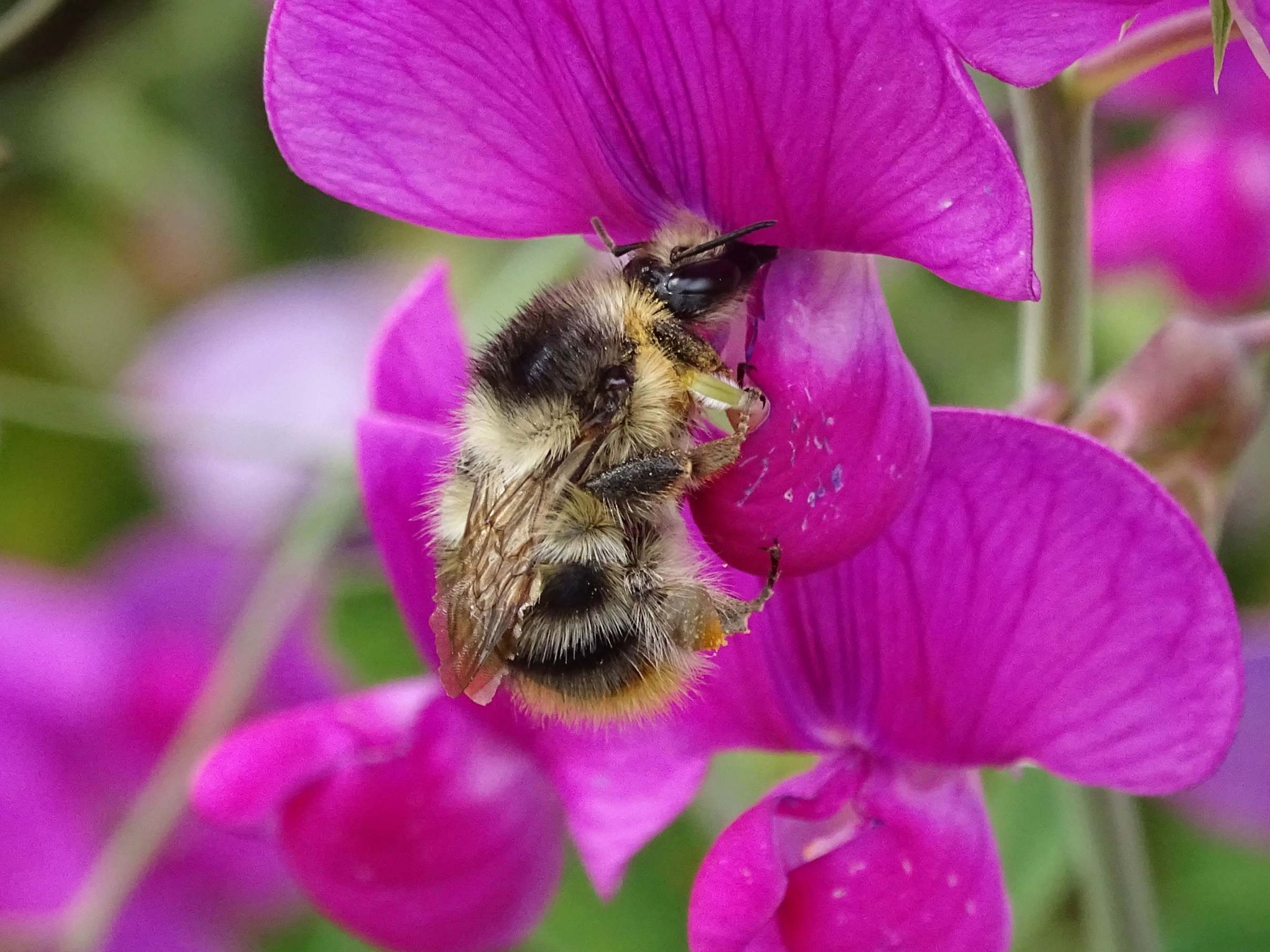Bumblebees suffer worst year since 2012 after extreme winter and heatwave, conservationists say
Insects could face long-term problems with more frequent heatwaves due to climate change

Extreme weather including snowstorms and drought meant it was tough year for many of Britain's bumblebees, conservationists have warned.
However, several rare species which emerge late and love hot conditions had a very good year, according to a report from the Bumblebee Conservation Trust.
Data from volunteer "BeeWalks" through the spring and summer showed that freezing conditions in late February and early March, as the country was hit by the "Beast from the East", delayed the start of the 2018 bumblebee season.
Most of the 24 species of UK bumblebee got off to a slow start and only reached normal numbers in July. Experts said this suggested queen bees were late out of hibernation and slow to produce large numbers of workers.
The hot, dry summer caused further problems for the insects, with many species declining more quickly than normal as the year progressed and the heatwave wilted and parched flowers, reducing the amount of food for them.
Insects at risk of extinction
Show all 12The early bumblebee had its worst year since the near constant rain in 2012, while species commonly seen in people's backyards, such as the garden, buff-tailed, heath and white-tailed bumblebees all had poor years.
Last year was the worst for the number of individuals per species recorded since the washout weather in 2012 and conservationists are concerned that that could have a knock-on effect for this year's numbers.
That is because the heatwave could have affected the number of queens which made it into hibernation last winter.
The country's bumblebees could face long-term problems from the more frequent heatwaves that the UK is likely to see with climate change, the wildlife organisation warned.
But 2018 saw better news for a handful of rare species, including the brown-banded carder bee, the shrill carder bee and the large garden bee - all warmth-loving species which are at the north edge of their range in England and Wales.
They all emerge late so the icy conditions in March will largely not have affected them.
The Bumblebee Conservation Trust also said all three have been the focus of projects to create and conserve suitable habitat for them.
The citizen science BeeWalk scheme has been running since 2010. Volunteers walk a fixed monitoring route roughly 1-2km in length (0.6-1.2 miles) through some flower-rich habitat and record the bees they see.
Each of the network of routes is walked at least once a month between March and October, with data from 559 sites submitted by 482 people in 2018.
Dr Richard Comont, science manager at the Bumblebee Conservation Trust, said: "Whilst it is great to see the four 'biggest species winners' from our latest 'BeeWalk' data are rare bumblebees, it's concerning to see four of our seven commonest bumblebees have declined over the last nine years."
Gill Perkins, the trust's chief executive, said: "I greatly welcome the latest BeeWalk report and thank all those who 'BeeWalked' in 2018. Their amazing efforts allow us to answer the critical question 'how the UK's bumblebees are doing?' using high-quality evidence. I'm particularly concerned by the declines reported in some of our common garden species."
She added: "We all need to make sure our gardens, parks and green spaces are bumblebee-friendly to stop today's common species becoming tomorrow's rarities."
Press Association
Subscribe to Independent Premium to bookmark this article
Want to bookmark your favourite articles and stories to read or reference later? Start your Independent Premium subscription today.

Join our commenting forum
Join thought-provoking conversations, follow other Independent readers and see their replies